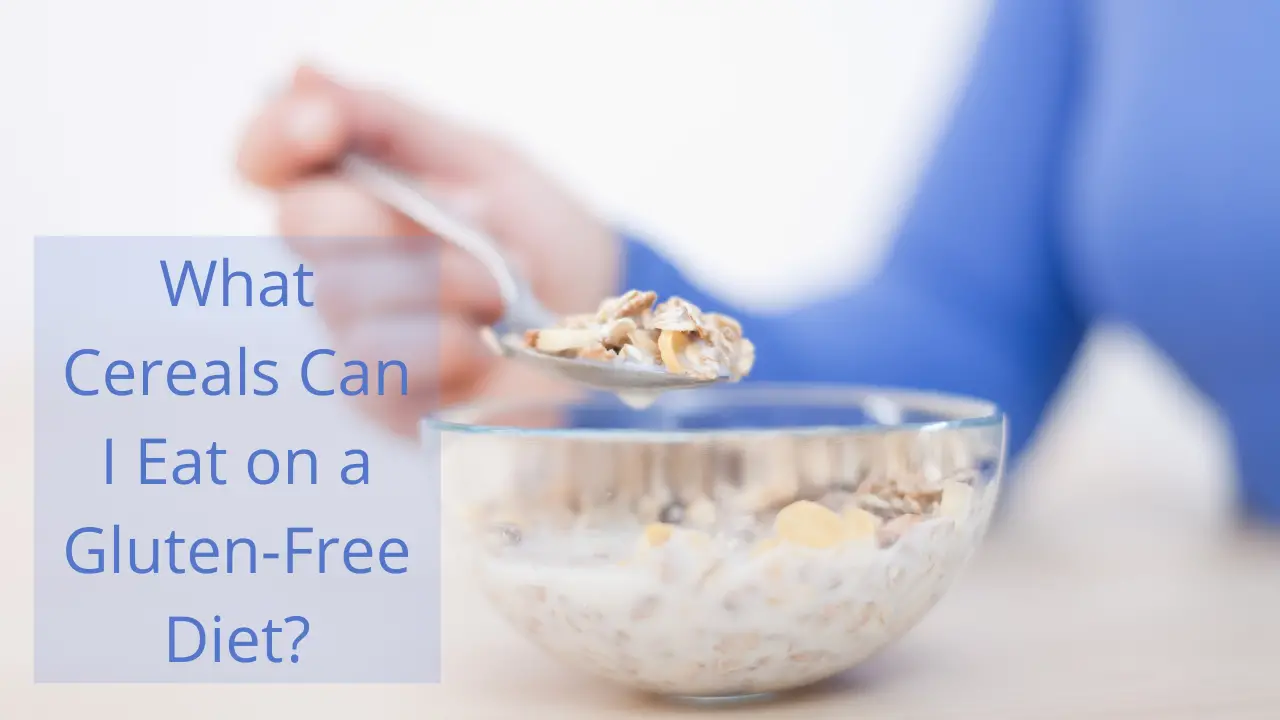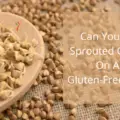Cereals are a quick and easy breakfast in our busy world nowadays. There's no work; it's just a bowl of milk, and in goes the cereal. Let's not forget they can be nutritious and delicious when choosing the right ones! Some may even decide to eat cereal in the evening.
So, now that we know that cereals aren't only for breakfast what about gluten-free dieters? What can they do when the majority of available cereals in the market contain gluten? Luckily, we have a list of gluten-free brands of all types right here!
What's with the Gluten-Free Cereal Trend?
More and more of us are shifting to a gluten-free diet. Statistics show that between 2009-2014 the number of gluten-free dieters in America tripled in just five years! And, there has been an even more drastic increase after 2014, up until now. But the thing is that gluten-free cereals can be more expensive than traditional cereals. So why are people so invested?
The reason lies behind the increase in celiac and non-celiac sensitivity in the US. With the increasing intolerance for gluten, a gluten-free diet becomes necessary. Even now, one million people have celiac disease and cannot consume gluten in any form.
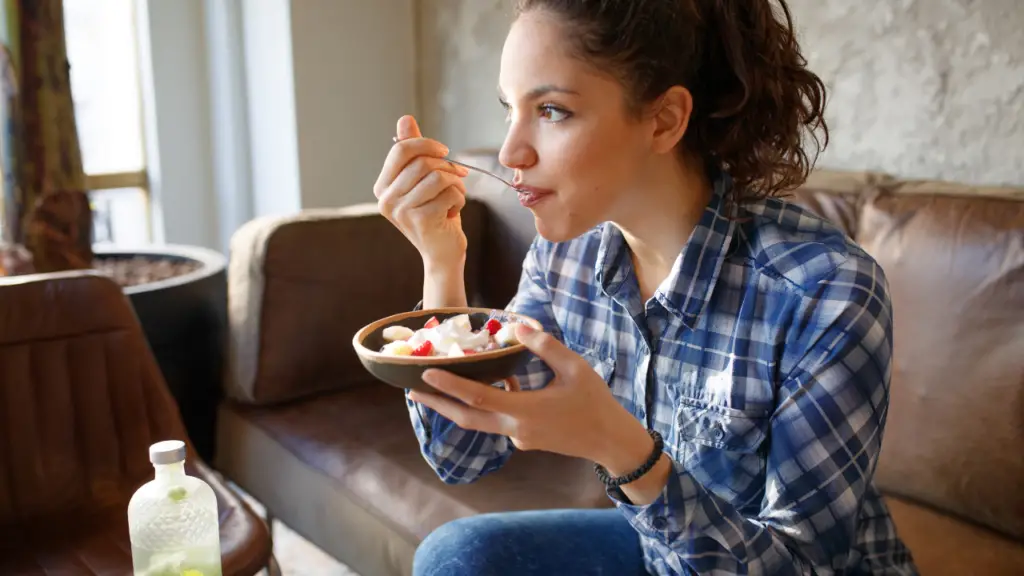
Thus, the ‘big deal' is that a gluten-free diet has become essential for many to live a healthy lifestyle. Even if you don't suffer from these conditions, leaving behind gluten may provide tons of benefits to your body. Hence, the buzz is all about how eliminating gluten and having a healthier lifestyle.
Which Grains Make Gluten-Free Cereals?
Gluten is found in barley, wheat, and rye. Someone with celiac can eat the remaining grains as long as they're safe from cross-contamination. There are plenty of options for gluten-free dieters for cereals to add to their morning meals. Firstly, you can eat all whole grains except wheat, rye, and barley on a gluten-free diet. So, any cereal made from grains except these three works well with the diet.
Popular gluten-free cereals include quinoa, sorghum, rice, millet, amaranth, and oats. There is a controversial element to the gluten-freeness of oats, as they can be cross-contaminated. But, they are naturally gluten-free. So, choose oats labeled as gluten-free to be safe.
What Makes Cereals Gluten-Free?
Wheat, rye, and barley contain a protein particle in their very structure that is called gluten. Gluten needs to be eliminated by those following a gluten-free diet, for whatever their reasoning.
Ultimately, a gluten-free diet means taking out all forms of gluten, including breakfast cereals. Breakfast cereals are often made from gluten-based grains, especially wheat. They may also contain gluten-based flavorings or other additives like malt flavoring. There are many gluten-based additives that amateur gluten-free dieters may not be able to identify. Therefore, it is crucial to know how gluten appears on food labels.

A gluten-free cereal has no gluten in the base ingredients as well as the additives. So what you're left with is a cereal that is made from other non-gluten-based grains. They may also contain additives, but ones that do not have gluten. Remember, gluten-free cereals are labeled or certified gluten-free. Other cereals might not contain gluten in them, but they may be cross-contaminated.
Wheat-Free is NOT Gluten-Free
Whenever a product contains wheat, it is explicitly mentioned on the product label. It's because wheat is one of the top food allergens. Under FDA guidelines, it necessary for manufacturers to label their products if it contains wheat. Wheat is also one of the primary gluten grains.
However, another misconception is that anything that says wheat-free is automatically gluten-free. Wheat-free and gluten-free are two contrasting definitions. Wheat-free only exempts wheat, but not other forms of gluten, including rye and barley.
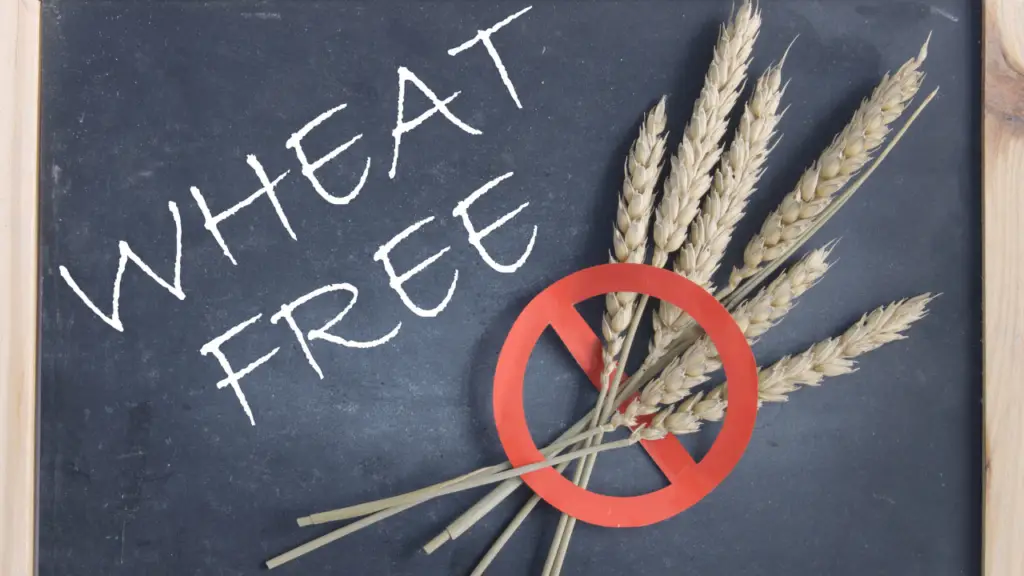
These grains can make the foundational ingredients or the additives in the cereal. It would be best if you didn't fall for this trap when choosing to buy gluten-free cereals. Check the labels, or better yet, buy labeled or certified gluten-free cereals.
Gluten-Free But Unhealthy?
Similar to the belief that wheat-free is gluten-free, another opinion is that anything gluten-free is healthy. Unfortunately, despite being gluten-free, not every gluten-free cereal is nutritious.
The reason is that many gluten-free brands substitute the missing ‘gluten taste' with unhealthy ingredients. Another more shocking fact is that gluten-free brands may add an increasingly high quantity of sugar. And by that, we mean that some brands have more sugar than their traditional gluten versions!
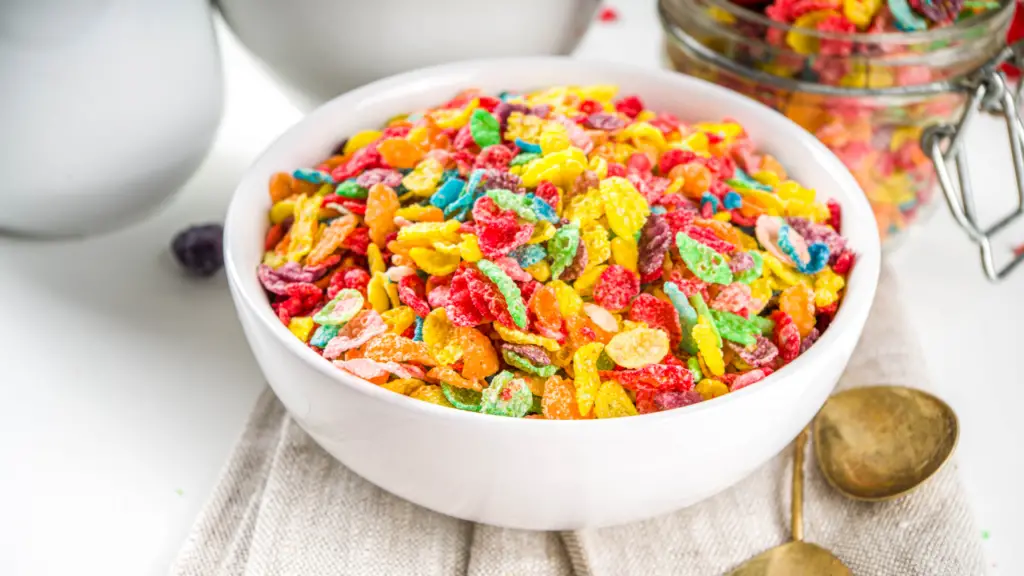
Sugar is another enemy to your body, and increased intake leads to many long-term diseases. Again, take a look at the stats. CDC's 2020 studies show more than 34 million people in the US suffer from diabetes. Even more shocking is the fact that 88 million suffer from pre-diabetes!
Therefore, when choosing gluten-free brands, try going for low-sugar gluten-free cereals. If you're not a big fan of the idea, reduce your daily intake of cereal or don't eat it every day.
High Fiber Gluten-Free Cereals
Gluten-free dieters exclude high-fiber foods like pasta, cereal, bread, baked goods, etc., made from gluten grains. As a result, they often forget about their low fiber intake. Fiber is necessary for a healthy digestive system, especially to avoid constipation. Here are some gluten-free cereal brands that are high in fiber:
● Van's Cereals: Van's Cereals has introduced a cereal named “cinnamon heaven” that fits the description of gluten-free high-fiber cereal. No artificial ingredients are used, such as high fructose corn syrup. It is an excellent pick as not many brands of cereals is this tasty and high in fiber while being gluten-free.
● Nature's Path: Nature's Path is an exceptional brand for cereals. But their Mesa Sunrise flakes are what you've been missing out on. If you head to the brand's website, you'll find that this product is gluten-free and wheat-free. In addition, it is an excellent blend of Indian corn, flax, and amaranth to make naturally sweetened cereal flakes crunchy.
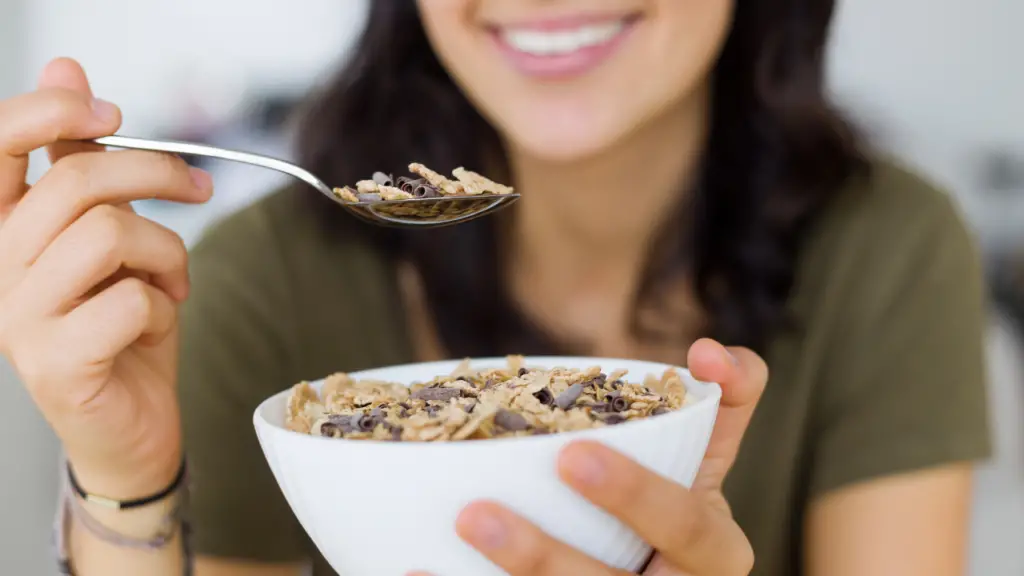
● Boulder Granola: Boulder Granola is a brand that has various flavors of high-fiber cereals. Among these, original flavor, chocolate chunk, cranberry, and vanilla pecan are certified gluten-free. Usually, gluten-free products are allowed to have about 20ppm gluten. But according to the GFCO, the gluten-free cereals of Boulder Granola contain less than 10ppm gluten.
● NUCO: Paleo dieters have created a trend of eating coconut flakes that have been an absolute hit. Not only is this cereal gluten-free, but also non-GMO, kosher, vegan, and paleo. In addition, you get a whopping 7 grams of fiber per serving, which is why coconut flakes of NUCO are a healthy choice.
High Protein Gluten-Free Cereals
Some of us are on the dedicated high-protein diet alongside maintaining a gluten-free one. For these individuals, we've gathered a list of cereals that are gluten-free and high-protein. It is known that protein is essential for a healthy human body, so don't miss out on these delicious cereals.
● Magic Spoon: Magic Spoon has started selling cereals that are gluten-free and high-protein. Without artificial sweeteners, a serving of Magic Spoon's cereals contains almost 12 grams of protein. All the ingredients are natural and pure. You may have a hard time choosing one of their flavors, as the Cinnamon, Cocoa, Frosted, and Fruity are each irresistible. Their cereals are also keto-friendly. It's the reason why Magic Spoon is better than the traditional brands.
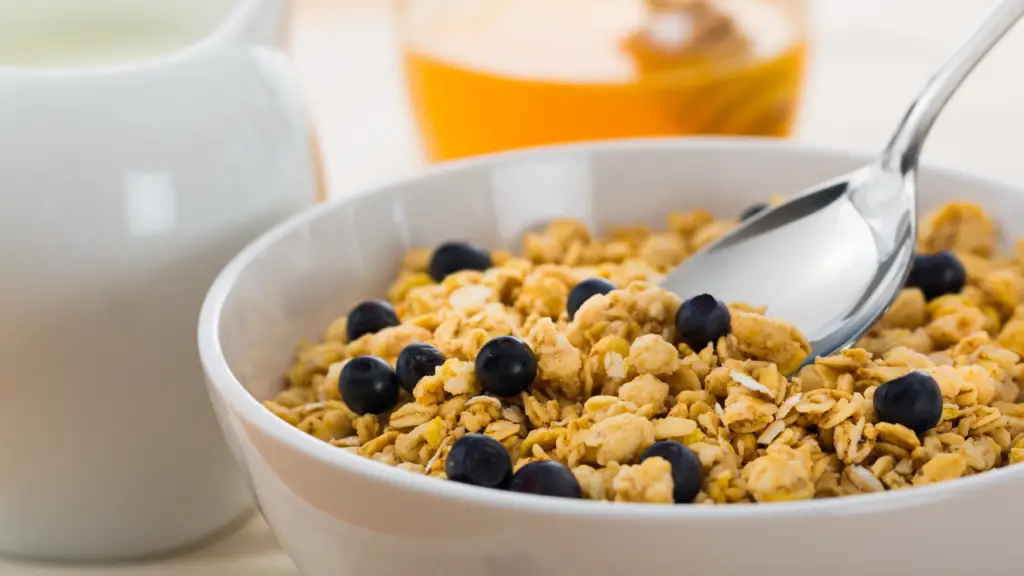
● Erin Baker's: Most cereals available in the market are not as nutritious as others, especially in the protein department. Erin Baker's started an ultra-protein peanut butter granola to cater to this need of their celiac customers. In each half-cup serving, you can almost get 10 grams of protein. Of course, if you're allergic to oats, this isn't for you. Otherwise, it is definitely, worth a try. The brand tests its products extensively to ensure that its ultra-protein peanut butter granola is gluten-free.
Low Sugar Gluten-Free Cereals
As mentioned above, sugar isn't something you should constantly be consuming. And, it's the last thing you should be eating every single day. Those who have diabetes and are following the gluten-free diet need options too. Others may not have diabetes, but it doesn't hurt to reduce unhealthy sugar from your daily intake. Here are a few options that work for this group:
● Eden: For creamy soups, muesli, and granola, Eden's brown rice flakes are a real game-changer. This cereal is gluten-free and adheres to strict kosher lines. This particular characteristic isn't common in cereals, making these organic rice flakes very unique. In addition, these are 100 percent whole grain and a great source of various essential vitamins. Another thing is that they do not contain any added sugar.
● Love Grown: Love Grown's organic Power O's blend garbanzo beans, navy beans, lentils, brown rice, and salt. Without using any artificial or added sugar, Love Grown has given all the low-sugar gluten-free cereal brands quite a competition.
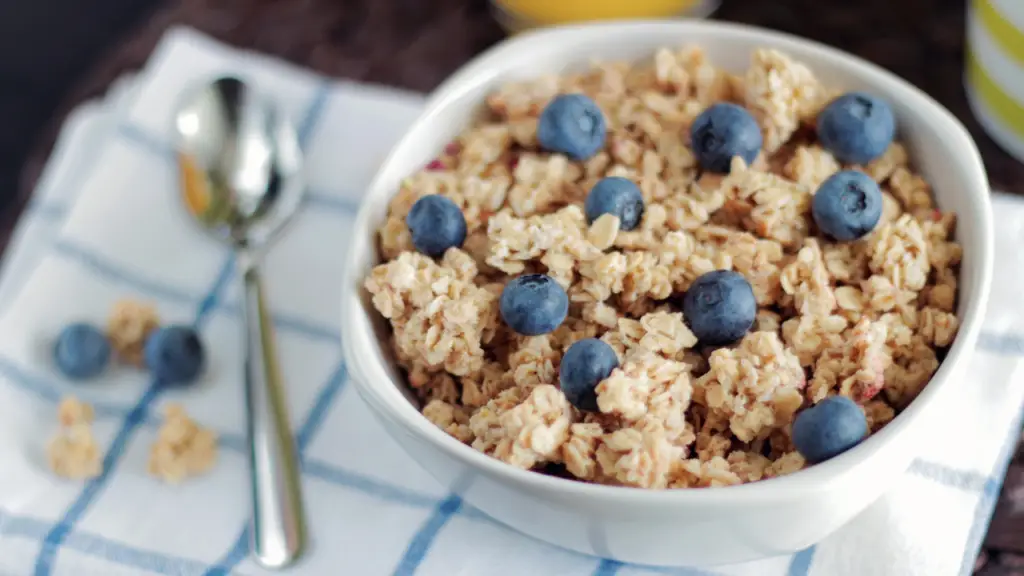
● Thrive Market: Thrive market's coconut flakes only contain 5 grams of sugar, and that too is naturally present. Otherwise, there's no added sugar to spike the sugar level of the cereal. In addition, the high fiber and fat content in the flakes induce a feeling of satiety and keep your hunger at bay.
● Barbara's: Barbara's organic brown rice crisps are another example of gluten-free cereal that contains less sugar than traditional cereals. Per 1/3rd cup serving, you get only 1 gram of sugar.
Vegan Gluten-Free Cereals
When discussing gluten-free cereals, many forget about vegan dieters. Yet, they're part of the community, too, and it's important to let them know they too have options. Excluding animal derivatives, eggs, and seafood from your diet does not mean you can't have cereals anymore. Get your hands on these cereals and enjoy the best of both worlds:
● Wildway: Wildway has gone out of its way to accommodate vegan and gluten-free dieters. What's more, their coconut cashew granola contains no grains. So for anyone avoiding grains altogether, this can be your ultimate go-to. Packed with nutritious fruits and nuts, it's also low in sugar.
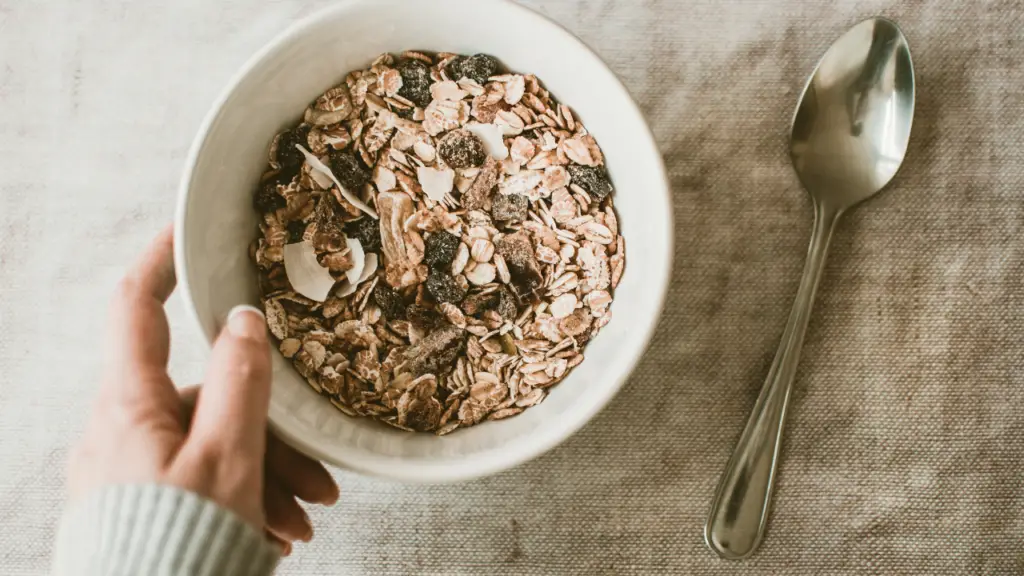
● Bob's Red Mill: Bob's Red Mill has made a name for itself in the gluten-free industry. Simultaneously, they're also making their products inclusive of other dietary requirements. For example, their tropical muesli is loaded with whole grains for the perfect start-of-the-day energy booster. Again, this cereal is also low on sugar, making it even healthier.
Famous Gluten-Free Cereals
Next comes our most favorite list, the famous brands' list! Sadly many gluten-free dieters have to make changes to their diet after their tastebuds are accustomed to the classics. So instead of giving up your childhood favorites and finding gluten-free brands, some of the classics have gluten-free cereal versions too.
However, since brands continue to change ingredients, ensure they are still gluten-free when you're about to buy them by reading the ingredient label. Here are a few you can look into buying.
● Kellogg's: Kellogg's are considerate towards their celiac customers and have started a gluten-free cereal. Although their Corn Flakes, Cocoa Krispies, Rice Krispies, and Crispix are wheat-free, the barley in the malt flavoring contaminates them. Only the Gluten-Free Rice Krispies are gluten-free and safe for those with celiac disease.
● General Mills: General Mills has some variety in its list of gluten-free cereal. The brand's Gluten-Free Bisquik is perfect for breakfast, while seven Chex varieties are also gluten-free. These are Blueberry Chex, Corn Chex, Chocolate Chex, Cinnamon Chex, Honey Nut Chex, Peanut Butter Chex, and Rice Chex.
Wrapping It Up
Eating a gluten-free diet complies with healthy, tasty breakfast cereals. Although, you will need to make the right choices. Keep your dietary requirements in mind when going to the store to purchase cereal. Always read your ingredient labels and choose low glycemic products, along with cereals free from dyes, processed oils, etc.
You are the best advocate for your body. Eating healthfully will reduce the risk of disease when it comes to the food you eat.

The owner of this website, HealthYeahLife.com is a participant in the Amazon Services LLC Associates Program, an affiliate advertising program designed to provide a means for sites to earn advertising fees by advertising and linking HealthYeahLife.com Review to Amazon properties including, but not limited to, amazon.com.

